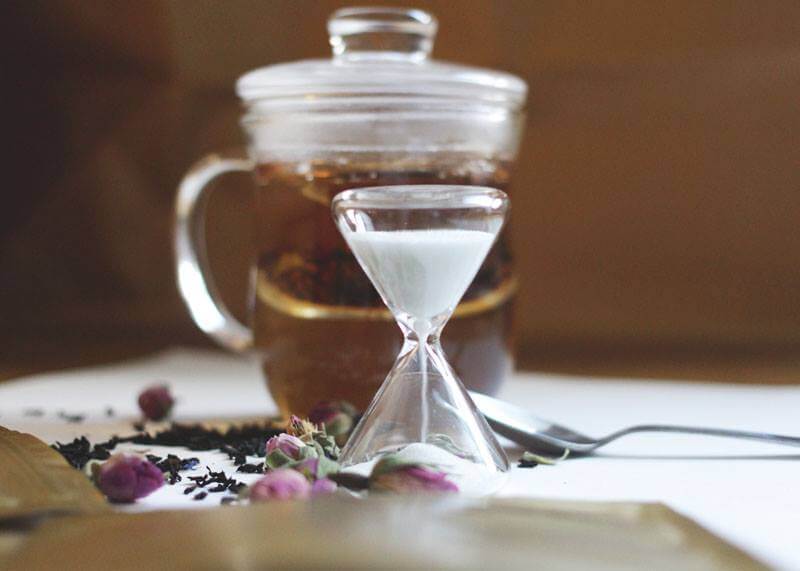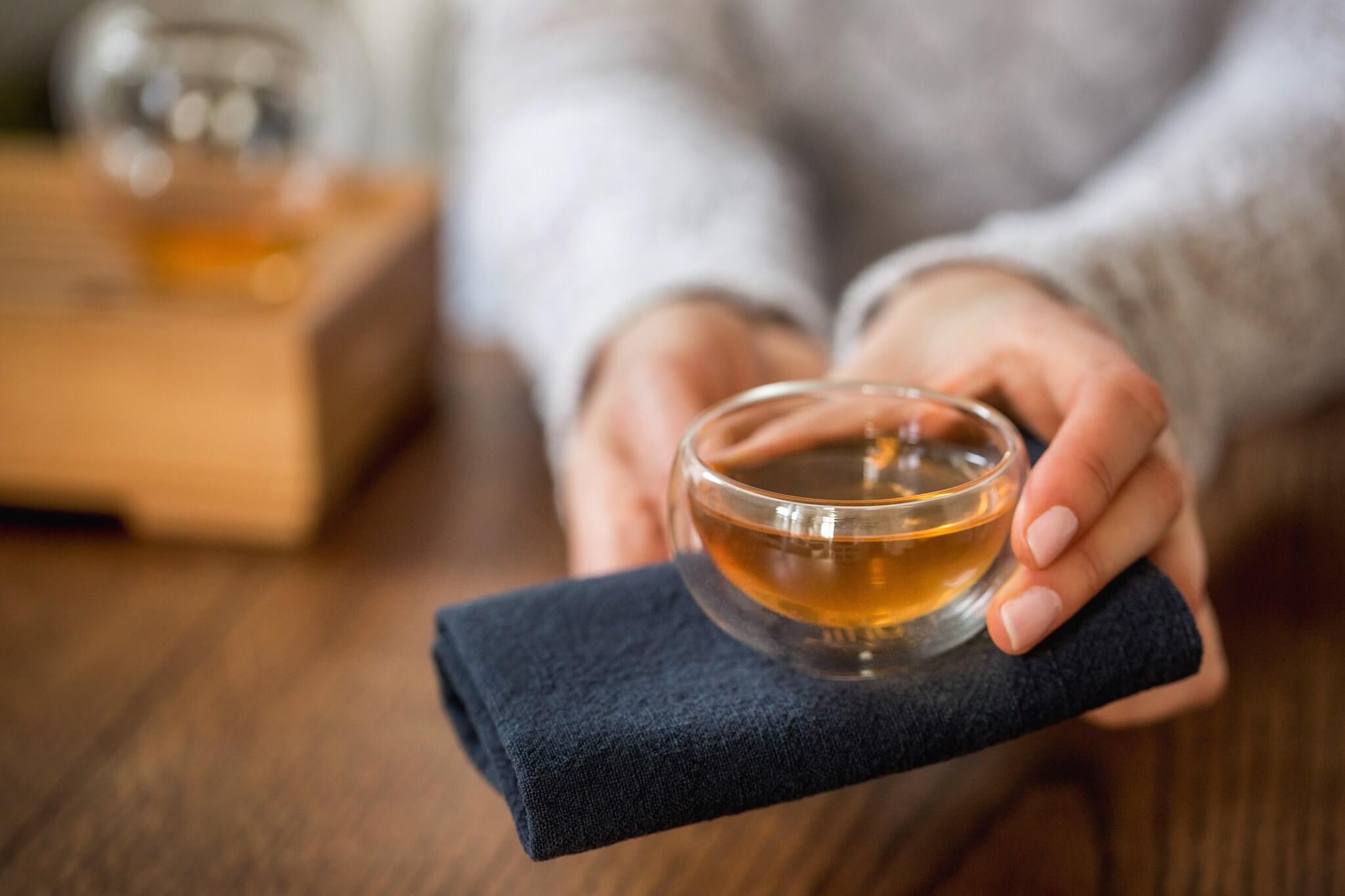About Tea Time: 5 of the Best Loose Leaf Black TeasBy Sam Holder
We are on the cusp of a revolution. A loose-leaf revolution.
For a country synonymous with the great cup of tea, we’ve been drinking the rubbish stuff for far too long. As Tea Editor at About Time (yes, a real job), it’s my mission to change people’s attitudes towards the humble cup of tea.
Our classic builders’ brew – strong, bitter and using teabags filled with the offcuts nobody else wants – is becoming less and less popular. Sales of low-quality bagged tea have tanked in the UK over the past 5 years. But it’s not all bad news for the humble cuppa; quality loose-leaf tea is on the rise. And it’s about time too.
Coffee, tea’s only real rival in the caffeine world, is in the midst of its ‘craft’ renaissance. Even British beer has become something of an artisanal beverage. Now it’s tea’s time to come to the boil. With a huge range of styles and flavours, from intensely floral and sweet oolongs to deep, dark, chocolatey blacks, there’s a tea to suit everybody’s taste.
Drinking loose-leaf tea makes all the difference, trust me. Delicate tea leaves need space to expand and infuse. The owner of Palais Des Thés (one of France’s biggest tea houses) once told me on a houseboat in Kerala, that delicate flavours can’t break through the barrier of a teabag. The science may not be exact, but he’s right about the taste.
So where to start? If you like classic British tea, then loose-leaf black is the next obvious step. It’s easy to make: for most, just wait for the water to boil before pouring directly on the leaves, for the correct amount of time.
You can use a teapot, a gaiwan (a small Chinese drinking vessel), or even two teacups and a strainer (note – pour the water over the tea in one cup, then strain into the second). Jing Tea do something lovely gift sets for getting started – see here. There are dozens of types of black tea, with each country, region and even village cultivating various strains, using different processing techniques – and creating an endless array of flavours.
If you’re looking to look beyond the regular builder’s brew, here are the top 5 ‘better’ black teas to try out. None of them have any added flavouring and they don’t need milk or sugar, so you’re guaranteed the perfect up:
1. Yunnan Golden Snail Buds, What-Cha
Like drinking hot chocolate: smooth, sweet and impossible not to like.
The Lowdown: What-Cha is a great online retailer based in the UK and specialises in rare, unusual and independent teas from around the world. The Golden Snail Buds look absolutely nothing like any tea you’ll have seen before; beautiful little golden curls or ‘snails’. They produce a simply delicious tea, with sweet milk chocolate, malt and raisin flavours. So smooth and drinkable, this is the perfect first step for anybody wanting to try better quality tea. Wonderful.
Flavours: Chocolate and raisins. Delicious.
Country of origin: China
How to brew: 1 teaspoon, 90 degree water (pour boiling water into a cold mug first, then infuse), 2 mins 30 secs. Suitable for multiple infusions with shorter times, of around 1.5 minutes.
Price: £8 for 50g, What-Cha (makes around 40 cups if using multiple infusions)
2. Keemun Needles 2016, Postcard Teas
An exceptional tea of the highest quality – sweet, soft and sophisticated. Perfect to show off after dinner.
The Lowdown: Postcard Teas are one of London’s most respected tea suppliers and this is one of their finest black tea offerings. It’s supremely smooth, with a flavour of slight dark chocolate and berries and has absolutely no trace of bitterness. Keemun is a famous Chinese variety and this batch is grown on small plots without any pesticides. It’s one of the best black teas I’ve ever tasted, but with a price to match. Perfectly balanced and as complex as a fine wine, this is the kind of tea to save for special occasions or to bring out at the end of a dinner party instead of a dessert wine or whiskey.
Flavours: Sweet, balanced, hints of berries and chocolate.
Country of origin: China
How to brew: 1.5 teaspoons per cup, 95 degrees (let the water sit in the kettle for 30 secs), 2 minutes. Suitable for at least 3 infusions, with shorter times of around 1 minute.
Price: £14.95 for 20g, Postcard Teas (makes around 20 cups if using multiple infusions)
3. Rwanda OP, Good and Proper Tea Company
This is a gem of a tea at a steal of a price. Producing a bright orange cup, with a bright orange flavour!
The Lowdown: Good and Proper Tea began selling better quality brews out of a converted 1974 Citroen van but they’ve now progressed to a new tea bar in Clerkenwell. With it’s clean citrus notes, their Rwanda OP is bold enough to be drunk first thing in the morning and interesting enough to sip throughout the day. It may not be the fanciest grade of tea on the list, but it tastes great. And in the end, that’s what it’s all about.
Flavours: Citrus with a hint of spice.
Country of origin: Rwanda
How to brew: 1 teaspoon per cup, 100 degrees, 3 minutes. Can be infused again for around 2 mins.
Price: £6 for 105g, Good and Proper Tea Company (makes at least 30 cups)
Good value everyday tea: rich, earthy and peppery.
The Lowdown: Adagio is another online-only store with a huge array of loose-leaf teas. The ‘Yunnan Jig’ comes from the same region of China as What-Cha’s ‘Snail Buds’, but tastes noticeably different, with a more earthy and peppery flavour – a character unique to Yunnan teas. This one is naturally sweet and has a long, rich aftertaste, which seems to get better after the second infusion. A great tea to experiment with by changing steeping times and leaf amounts.
Flavours: Sweet and earthy (like manuka honey), with slight pepperiness on the tip of the tongue.
Country of origin: China
How to brew: 1.5 teaspoons per cup, 100 degrees, 3 minutes. Suitable for multiple infusions, 30 secs for each subsequent brew.
Price: £4.50 for 57g, Adagio Teas (makes at least 30 cups)
A luxury tea that tastes like no other. Intense herbal and stewed fruit flavours are likely to divide opinion – you’ll either love it or hate it.
The Lowdown: Jing has been influential in spreading the good gospel about high quality loose-leaf tea. The London based company supplies to various michelin-starred restaurants and this rare Taiwanese tea is as complex as a 3-starred dish. With strong herbal aromas (described as Eucalyptus) and a deep plum taste, it coats the throat with an almost everlasting aftertaste. Smooth and with multiple layers of flavour, it’s unlikely to be a hit with new drinkers (especially at the price) – but will provide a totally new experience for those looking to take tea-tasting to the next level.
Flavours: Plums and eucalyptus. Complex.
Country of origin: Taiwan
How to brew: 2 teaspoons per cup, 3 mins, 90 or 100 degrees (hotter for a more intense flavour). Suitable for a second infusion: I tried 85 degrees for 2 minutes and it was much lighter and sweeter.
Price: £14.50 for 25g, Jing (makes around 15 cups)
The best of the rest:
Adam’s Peak Ceylon, The Tea Makers: Strong, fruity and smooth. A good choice for those who already love black tea. £7.95 for 50g
Kenyan Golden Tips, What-Cha: Incredible taste of sweet peaches, a close second to their ‘golden snail buds’. £9 for 50g.
High Grown Nilgiri, Twinings: Very tasty – robust with tropical flavours, but be careful not to overbrew. £20 for 100g.
‘Mu Shu’ Old Abor, Green Tea Guru: Unusual tea made from ‘ancient’ bushes with a sweet, woody flavour. £7.65 for 50g
Follow Sam Holder, Tea Editor at About Time, on Twitter here.









